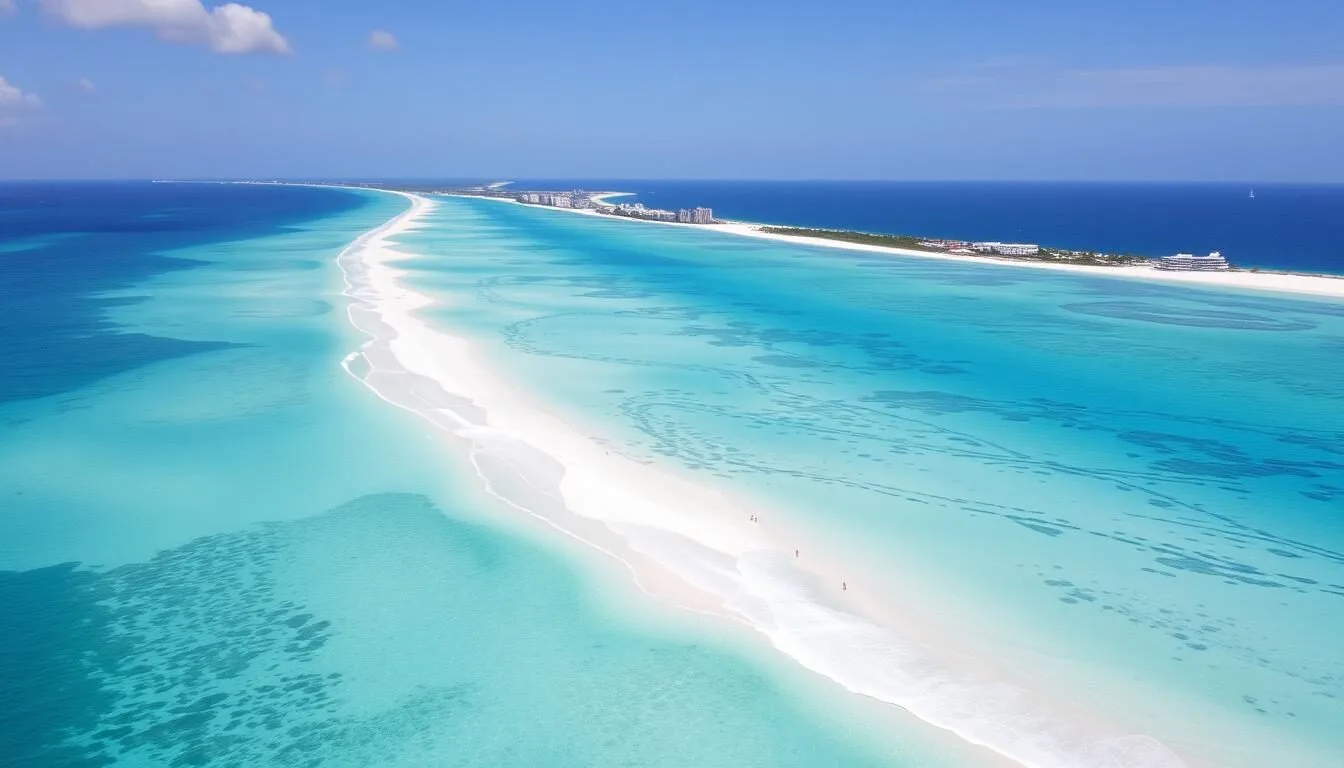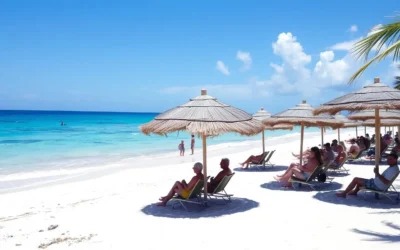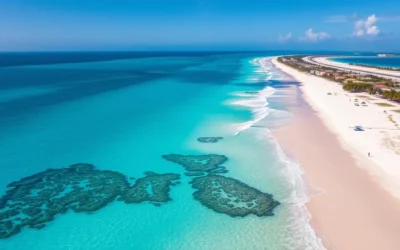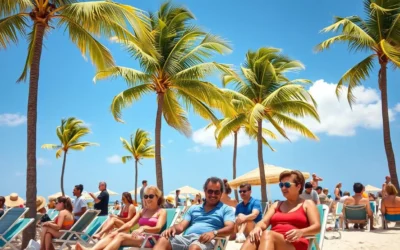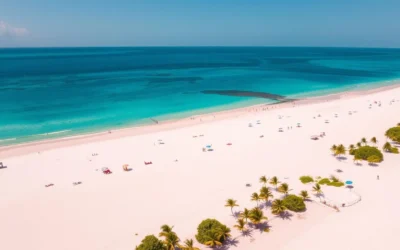Did you know Aruba receives just 510 mm (20 in) of annual rainfall—less than half of most Caribbean islands? This “One Happy Island” boasts some of the most reliable sunshine in the Caribbean, with over 300 days of clear skies annually. Unlike its neighbors, Aruba sits safely outside the hurricane belt, making it a dependable year-round destination. But when exactly is the best time to visit Aruba for your perfect getaway? Let’s explore the island’s unique climate patterns to help you plan a weather-perfect escape.
Getting There & Planning Your Journey
Queen Beatrix International Airport (AUA) in Oranjestad serves as Aruba’s main gateway, welcoming direct flights from major U.S. cities including Miami, New York, Atlanta, and Charlotte. Flight times range from 2.5 hours (from Miami) to about 4.5 hours (from New York). American Airlines, JetBlue, United, and Delta offer regular service to the island.
For the best flight deals, consider booking 2-3 months in advance, especially if you’re planning to visit during the high season (December to April). The shoulder seasons (May-June and September-November) often offer more affordable airfare while still providing excellent weather conditions.
Ready to Book Your Aruba Adventure?
Find the best flight deals to Aruba’s sunny shores with our trusted travel partners.
Best Time to Visit & Weather Tips
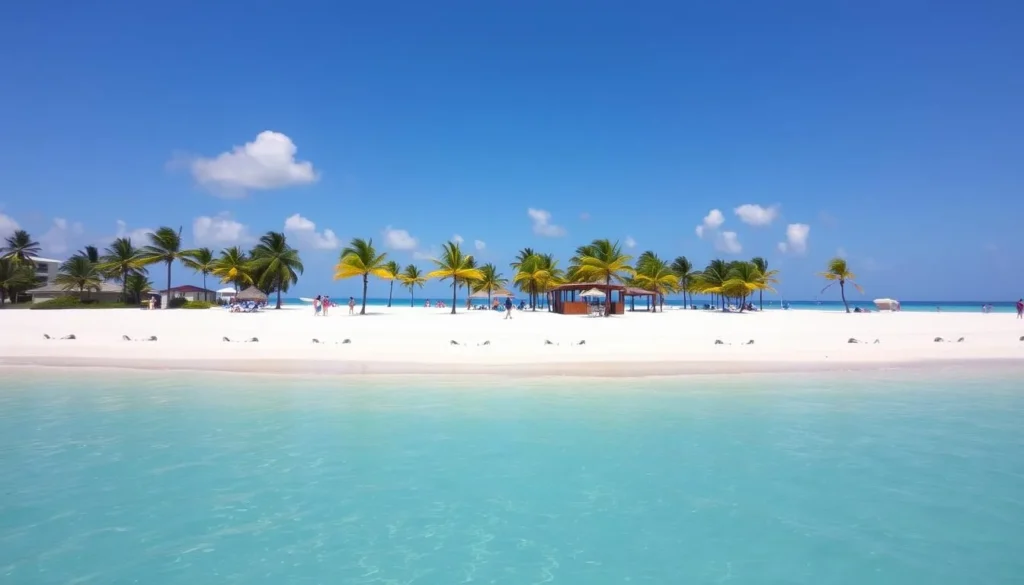
Aruba enjoys a consistently warm climate year-round with temperatures typically ranging from 24°C to 32°C (75°F to 90°F). The island’s location in the southern Caribbean, just 12 degrees north of the equator, ensures warm weather regardless of when you visit. However, other factors like rainfall, humidity, tourist crowds, and pricing can significantly impact your experience.
Month-by-Month Weather Guide
| Month | Weather | What to Wear | Things to Do | Pros & Cons |
| January | 27°C/21°C (81°F/70°F) 20 mm (0.8 in) rainfall 8.5 hrs daylight 77% humidity | Light clothing, swimwear, light jacket for evenings | Aruba Carnival events, windsurfing, beach activities | ✅ Perfect weather ✅ Vibrant atmosphere ❌ Peak prices ❌ Crowded beaches |
| February | 27°C/21°C (81°F/70°F) 18 mm (0.7 in) rainfall 8.7 hrs daylight 76% humidity | Light clothing, swimwear, light jacket for evenings | Carnival Grand Parade, snorkeling, hiking in Arikok National Park | ✅ Perfect weather ✅ Carnival festivities ❌ Highest prices ❌ Very crowded |
| March | 28°C/22°C (82°F/72°F) 15 mm (0.6 in) rainfall 9 hrs daylight 75% humidity | Light clothing, swimwear, sun protection | Beach hopping, water sports, sunset cruises | ✅ Excellent weather ✅ Ideal water conditions ❌ High prices ❌ Crowded attractions |
| April | 29°C/23°C (84°F/73°F) 10 mm (0.4 in) rainfall 9.3 hrs daylight 76% humidity | Light clothing, swimwear, extra sun protection | King’s Day celebrations, diving, beach activities | ✅ Excellent weather ✅ Decreasing crowds ✅ Lower prices ❌ Getting warmer |
| May | 30°C/24°C (86°F/75°F) 25 mm (1 in) rainfall 9.5 hrs daylight 77% humidity | Light, breathable clothing, swimwear, sun hat | Soul Beach Music Festival, snorkeling, less crowded beaches | ✅ Good deals ✅ Fewer tourists ✅ Music festival ❌ Increasing heat |
| June | 31°C/25°C (88°F/77°F) 30 mm (1.2 in) rainfall 9.7 hrs daylight 78% humidity | Very light clothing, swimwear, sun protection | Aruba International Film Festival, diving, beach relaxation | ✅ Great hotel deals ✅ Quieter beaches ❌ Very hot ❌ Slightly higher humidity |
| July | 32°C/25°C (90°F/77°F) 35 mm (1.4 in) rainfall 9.6 hrs daylight 78% humidity | Very light clothing, swimwear, extra sun protection | Hi-Winds Windsurfing Competition, water sports, beach clubs | ✅ Fewer tourists ✅ Good deals ❌ Hottest month ❌ Brief rain showers |
| August | 32°C/25°C (90°F/77°F) 40 mm (1.6 in) rainfall 9.4 hrs daylight 79% humidity | Very light clothing, swimwear, rain jacket | Aruba Summer Music Festival, indoor activities during showers | ✅ Low season prices ✅ Less crowded ❌ Hot weather ❌ Brief afternoon showers |
| September | 32°C/25°C (90°F/77°F) 50 mm (2 in) rainfall 9.1 hrs daylight 80% humidity | Light clothing, swimwear, rain gear | Aruba Art Fair, museum visits, shopping in Oranjestad | ✅ Lowest prices ✅ Few tourists ❌ Highest rainfall ❌ Some businesses close |
| October | 31°C/24°C (88°F/75°F) 60 mm (2.4 in) rainfall 8.9 hrs daylight 81% humidity | Light clothing, swimwear, rain gear | Eat Local Aruba Restaurant Month, bird watching, indoor activities | ✅ Great dining deals ✅ Very few tourists ❌ Wettest month ❌ Higher humidity |
| November | 30°C/23°C (86°F/73°F) 45 mm (1.8 in) rainfall 8.6 hrs daylight 80% humidity | Light clothing, swimwear, light rain jacket | Caribbean Sea Jazz Festival, diving, exploring Arikok National Park | ✅ Good deals ✅ Decreasing rain ❌ Some rain showers ❌ Humidity still high |
| December | 28°C/22°C (82°F/72°F) 30 mm (1.2 in) rainfall 8.4 hrs daylight 78% humidity | Light clothing, swimwear, light jacket for evenings | Dande Festival, holiday celebrations, beach activities | ✅ Improving weather ✅ Festive atmosphere ❌ Increasing prices ❌ Growing crowds |
Seasonal Overview
High Season (Dec-Apr)
Weather: 27-29°C (81-84°F), minimal rainfall
What to Wear: Light clothing, swimwear, light jacket for evenings
Things to Do: Carnival, beach activities, water sports
Pros: Perfect weather, vibrant atmosphere
Cons: Higher prices, crowded beaches
Shoulder Season (Apr-Jun)
Weather: 29-31°C (84-88°F), occasional light showers
What to Wear: Light, breathable clothing, extra sun protection
Things to Do: Soul Beach Music Festival, less crowded beaches
Pros: Good deals, fewer tourists
Cons: Increasing heat and humidity
Low Season (Jul-Oct)
Weather: 31-32°C (88-90°F), brief afternoon showers
What to Wear: Very light clothing, rain gear
Things to Do: Indoor activities, cultural events, dining
Pros: Lowest prices, authentic experience
Cons: Hot, highest rainfall in Sep-Oct
Shoulder Season (Nov)
Weather: 30°C (86°F), decreasing rainfall
What to Wear: Light clothing, light rain jacket
Things to Do: Jazz Festival, diving, exploring
Pros: Good deals, improving weather
Cons: Some rain showers, humidity
Best Time to Visit Aruba
Best Time to Visit
- January to March: Perfect weather, vibrant atmosphere with Carnival celebrations
- April to May: Excellent balance of good weather, fewer crowds, and better prices
- December: Festive holiday atmosphere with improving weather conditions
Times to Avoid
- September to October: Highest rainfall and humidity, some businesses close
- July to August: Extremely hot temperatures may be uncomfortable for some travelers
- Mid-February: Unless attending Carnival, prices are at their highest and crowds at their peak
Ready to Experience Aruba’s Perfect Weather?
Book your accommodations now to secure the best rates for your preferred travel dates.
Getting Around Locally
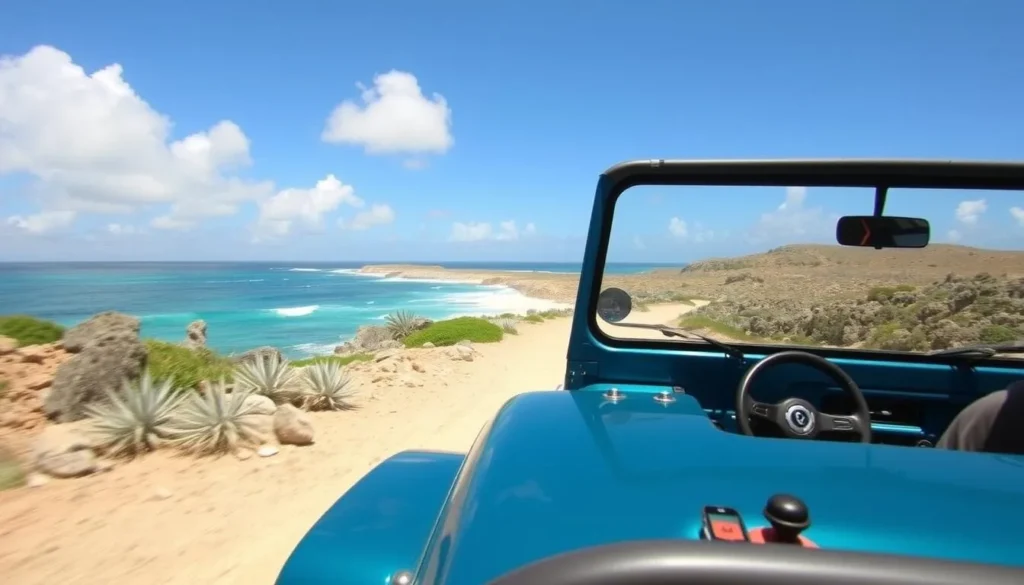
Exploring Aruba is relatively easy due to its compact size—the island is only 32 km (20 miles) long and 10 km (6 miles) across at its widest point. While public buses connect major tourist areas to downtown Oranjestad, renting a car gives you the freedom to explore at your own pace, especially the rugged northern coast and Arikok National Park.
Transportation Options
- Rental Car: The most flexible option, especially for exploring natural attractions. 4WD vehicles are recommended for Arikok National Park.
- Arubus: Public buses run between Oranjestad and major hotel areas with fares around $2.50 USD for a one-way ticket.
- Taxis: Widely available but unmetered with government-regulated rates. Confirm prices before departing.
- Ride-sharing: Limited availability compared to major cities.
Driving Tips
- Arubans drive on the right side of the road.
- An international driver’s license is not required for most visitors.
- Gas stations accept USD but may give change in Aruban florins.
- Parking in downtown Oranjestad can be challenging during peak hours.
- Navigation apps work well throughout the island.
Explore Aruba at Your Own Pace
Book your rental car today and enjoy the freedom to discover all of Aruba’s hidden gems.
Where to Stay
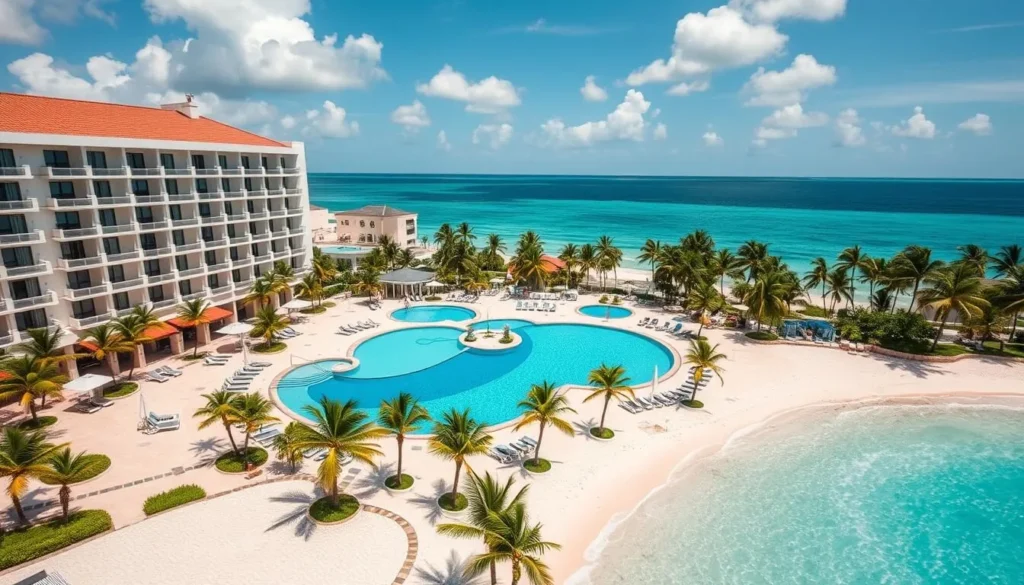
Aruba offers a diverse range of accommodations to suit every budget and preference. The island’s hotel zones are primarily concentrated along the western and northwestern coasts, with Palm Beach and Eagle Beach being the most popular areas for tourists.
Palm Beach
Best for: Luxury travelers, nightlife enthusiasts
Palm Beach is home to Aruba’s high-rise hotel district, featuring international brands like Marriott, Hyatt, and Hilton. This area offers a lively atmosphere with numerous restaurants, casinos, and shopping centers within walking distance.
Price range: $$$-$$$$
Eagle Beach
Best for: Couples, beach lovers, mid-range budgets
Eagle Beach features low-rise boutique hotels and timeshare properties set along one of the world’s most beautiful beaches. The atmosphere is more relaxed than Palm Beach, with fewer crowds and stunning sunset views.
Price range: $$-$$$
Oranjestad & Beyond
Best for: Budget travelers, cultural experiences, local immersion
Downtown Oranjestad and inland areas offer smaller hotels, guesthouses, and vacation rentals at more affordable prices. Stay here to experience local culture and be close to shopping and historical sites.
Price range: $-$$
Accommodation Tips Based on When You Visit
- High Season (December-April): Book 4-6 months in advance, expect higher rates, especially during Carnival season.
- Shoulder Seasons (April-June, November): Good availability with potential for upgrades and deals, 2-3 months advance booking recommended.
- Low Season (July-October): Best rates and availability, last-minute bookings possible, some properties may offer significant discounts.
Find Your Perfect Aruba Accommodation
From luxury resorts to boutique hotels and vacation rentals, find the perfect place to stay in Aruba.
Activities & Attractions
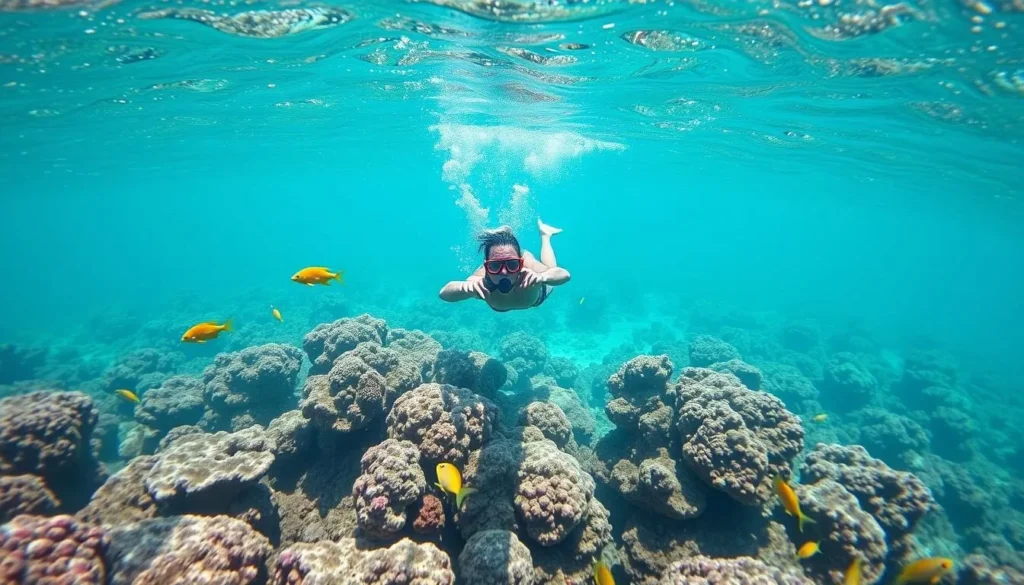
Aruba offers a diverse range of activities regardless of when you visit, though some experiences are better during specific seasons. The island’s consistent climate means outdoor adventures are possible year-round, but planning around weather patterns can enhance your experience.
Best Activities by Season
Dry Season (January-March)
- Arikok National Park: Ideal time for hiking with cooler temperatures and dry trails.
- Windsurfing & Kiteboarding: Strong trade winds create perfect conditions at Hadicurari Beach.
- Carnival Events: Experience vibrant parades, music, and cultural celebrations.
- Island Tours: Comfortable temperatures for exploring natural bridges, Casibari rock formations, and Ayo rock formations.
Wet Season (September-October)
- Diving & Snorkeling: Despite occasional rain, underwater visibility remains excellent with fewer crowds at popular sites.
- Cultural Experiences: Aruba Art Fair and local festivals offer authentic experiences.
- Dining: Eat Local Aruba Restaurant Month features special menus and pricing.
- Bird Watching: Bubali Bird Sanctuary is particularly active after rainfall.
Must-Visit Attractions
Natural Wonders
- Eagle Beach & Palm Beach
- Arikok National Park
- Natural Pool (Conchi)
- Flamingo Beach (Renaissance Island)
- California Lighthouse
Water Activities
- Snorkeling at Mangel Halto
- Diving the Antilla Shipwreck
- Sunset sailing cruises
- Stand-up paddleboarding
- Deep-sea fishing
Cultural Experiences
- San Nicolas Art District
- Oranjestad walking tour
- Aloe Vera Factory tour
- Fort Zoutman Historical Museum
- Aruba Carnival (Jan-Feb)
Discover Unforgettable Aruba Experiences
Book guided tours, water activities, and cultural experiences to make the most of your Aruba vacation.
Practical Travel Tips

Weather Preparation
- Sun Protection: Aruba’s UV index is extremely high year-round. Pack broad-spectrum sunscreen (SPF 50+), sunglasses, and wide-brimmed hats.
- Hydration: The constant trade winds can be deceptive—you may not feel hot but can still dehydrate quickly. Carry water everywhere.
- Rain Gear: If visiting September-October, pack a light rain jacket or poncho for brief afternoon showers.
- Evening Layers: Even in summer, evenings can feel cool with the trade winds. A light sweater or jacket is useful year-round.
Local Customs & Etiquette
- Language: While the official language is Papiamento, most Arubans speak excellent English, Dutch, and Spanish.
- Currency: The Aruban florin (AWG) is the official currency, but US dollars are widely accepted.
- Tipping: 15-20% is customary for good service, though some establishments add a service charge automatically.
- Dress Code: Beach attire is for beaches only. Cover up when entering restaurants, shops, or public areas.
Health & Safety
- Tap water in Aruba is safe to drink—it’s produced by desalination and meets World Health Organization standards.
- Aruba has excellent healthcare facilities, but travel insurance is recommended as medical care can be expensive.
- The island is one of the safest in the Caribbean, but standard precautions with valuables should be taken.
- If visiting during the hotter months (July-September), plan outdoor activities for early morning or late afternoon to avoid heat exhaustion.
Complete Your Aruba Vacation Planning
Consider adding a cruise to your Aruba adventure for an unforgettable Caribbean experience.
When Will You Visit Aruba?
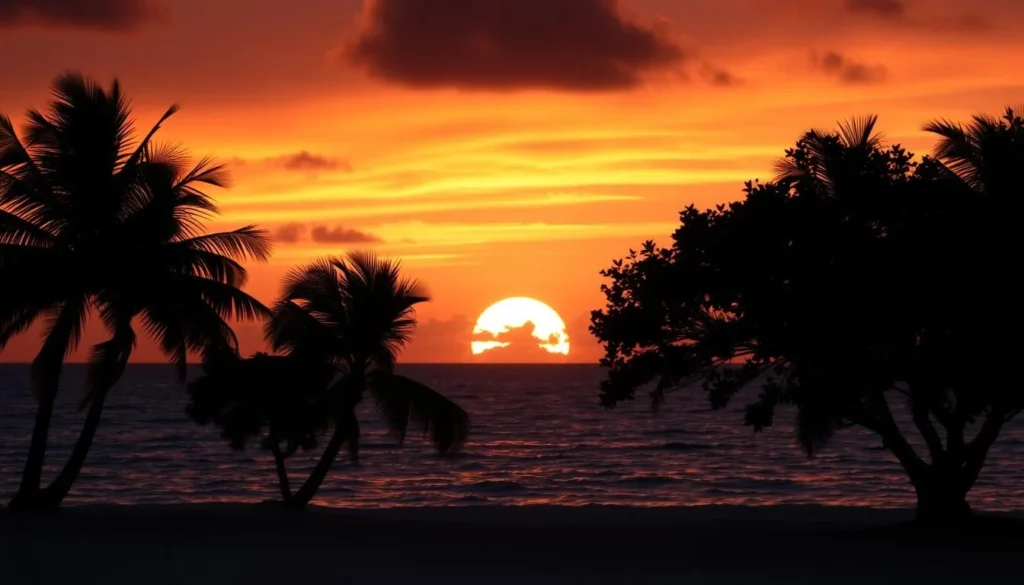
With year-round sunshine, gentle trade winds, and a location safely outside the hurricane belt, Aruba truly deserves its nickname as “One Happy Island.” Whether you choose the perfect weather of the high season, the value and fewer crowds of the shoulder seasons, or the authentic local experiences of the low season, Aruba’s natural beauty and warm hospitality await. The best time to visit Aruba ultimately depends on your preferences—budget-conscious travelers might prefer April-May or November, while those seeking perfect beach weather should aim for January-March. With 82% of visitors returning to Aruba for subsequent vacations (the highest repeat visitor rate in the Caribbean), your first trip likely won’t be your last. Start planning your weather-perfect Aruba escape today!
The above is subject to change.
Check back often to TRAVEL.COM for the latest travel tips and deals.
